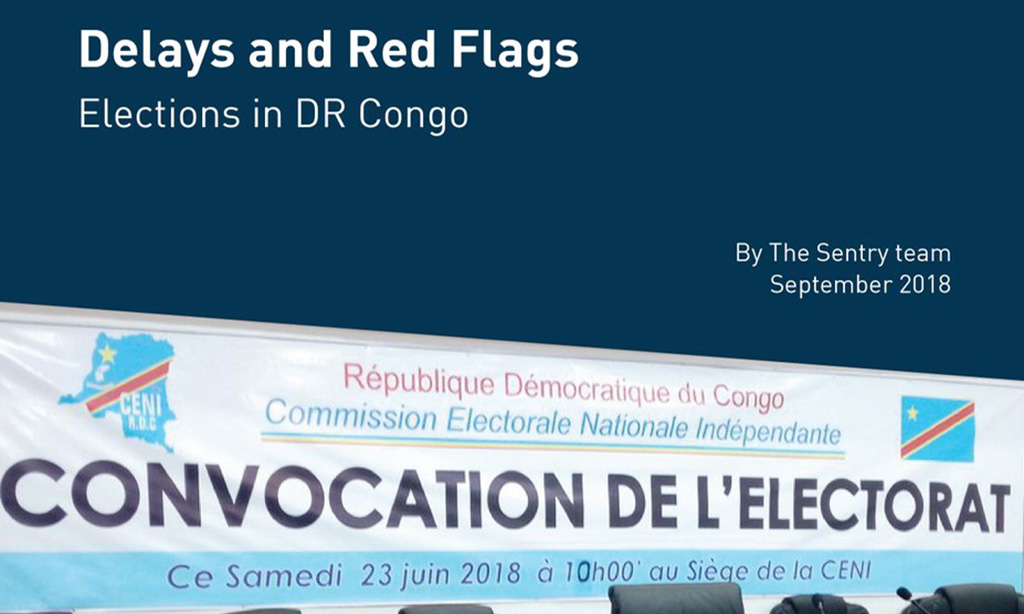The long-delayed elections in Congo (DRC) will take place on December, 2018. We posted many news about the upcoming DRC general election: in June, opposition leader Jean-Pierre Bemba was acquitted: International Criminal Court acquits DR Congo’s former vice president Bemba on appeal. Last week, Democratic Republic of Congo’s top court excluded Bemba from December’s presidential election (in French): Elections présidentielles au Congo (RDC) : la candidature de Jean-Pierre Bemba invalidée.
As the current situation is raising fears of widespread political violence months before the scheduled elections, The Sentry just released a new investigative report exploring allegations of corruption throughout the Democratic Republic of Congo’s current electoral cycle. As usual, The Sentry team did a great work, it is a very detailed report, involving President Joseph Kabila, the CENI and highlighting vulnerabilities in electronic voting machines.
Here is an excerpt from the Executive Summary:
Elections in the Democratic Republic of Congo (Congo) are currently scheduled for December 2018. Those elections are nearly two years overdue, as President Joseph Kabila’s mandate officially expired in December 2016. On August 8, Congo’s Minister of Communications and Media Lambert Mende announced that Kabila will not seek another term, and named former interior minister Emmanuel Ramazani Shadary as the official candidate of Congo’s ruling coalition. While the ruling coalition’s recent announcement is an important one, numerous red flags remain in both the technical and political aspects of the electoral process. Electoral credibility in Congo – and in turn that of the government – will be determined by much more than who runs for office.
To date, election preparations in Congo have been characterized by delays, lack of transparency and allegations of corruption, ethical violations and potentially inappropriate government interference in technical aspects of the process. This report explores a number of alarming developments throughout the electoral process, including allegations of corruption in the allocation of voter registration contracts, lack of transparency in the National Independent Electoral Commission’s (CENI) finances and unresolved questions regarding the integrity of voter rolls and security vulnerabilities in electronic voting machines. Taken together, these factors raise serious questions regarding the credibility of the electoral process, and the possibility that technical aspects of the election cycle have been and may continue to be manipulated.
You can read The Sentry full report (PDF) on this page. The report is also available in French here.








